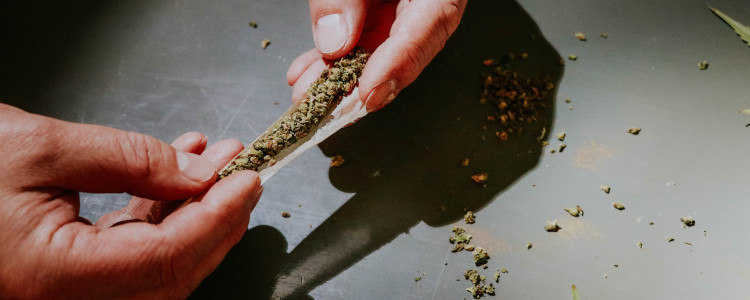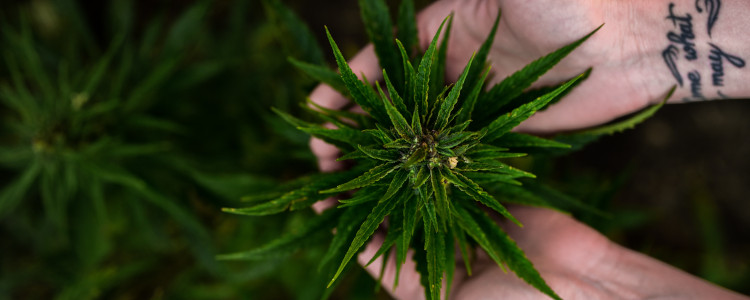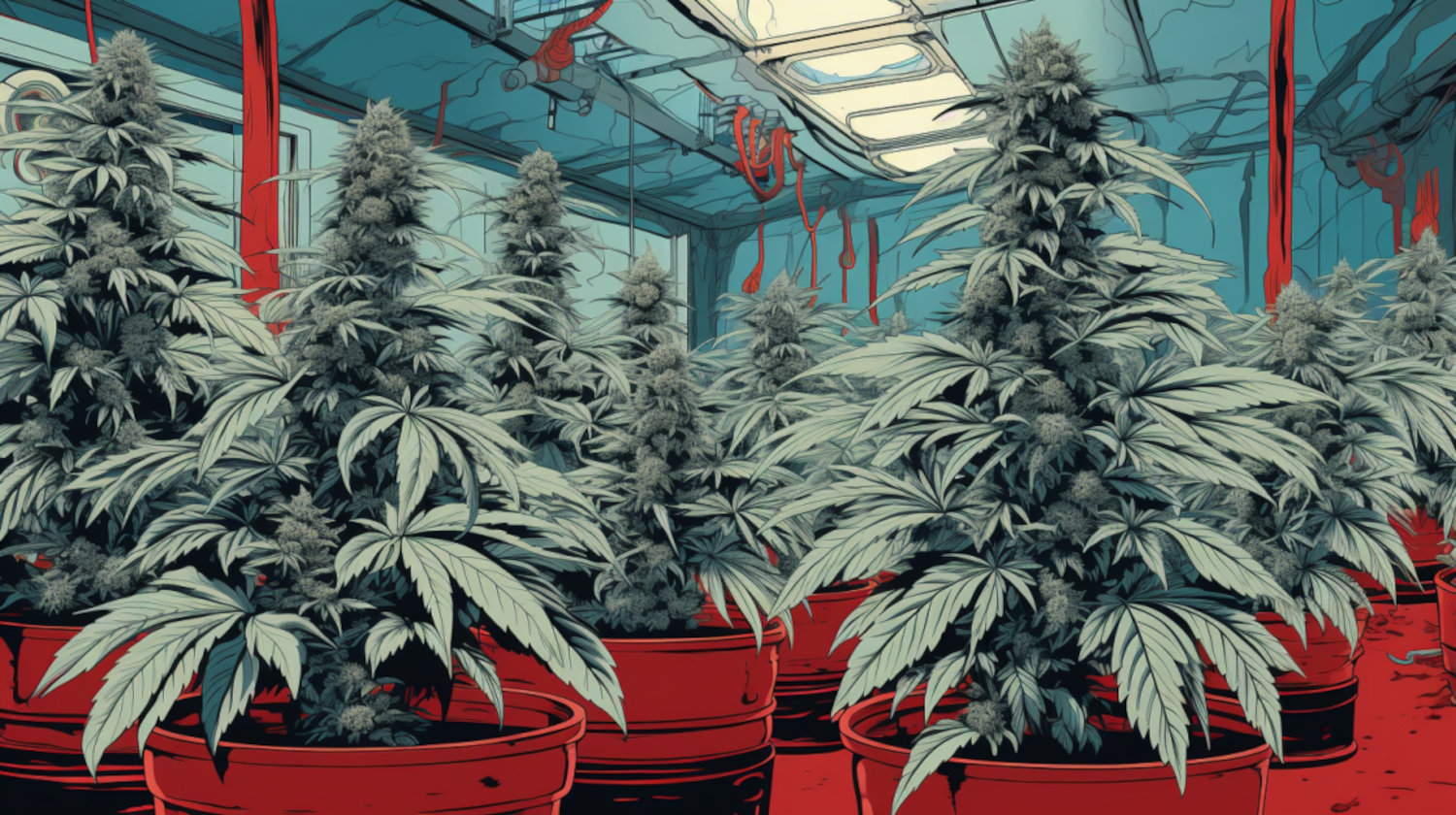Attention deficit hyperactivity disorder (ADHD) is a common condition that typically presents during childhood. It's primarily characterized by difficulty remaining focused and keeping one's attention on a single task. While childhood is typically when a diagnosis is made, symptoms can last into adulthood. In fact, in 2023, an estimated 15.5 million adults in the United States had an active ADHD diagnosis.
There are a variety of ADHD medications that are commonly prescribed today. One of the most popular medications is Ritalin. As cannabis use becomes more common, it’s worth understanding how it could interact with ADHD medications like Ritalin. There is limited research on this combination, and its effects can vary from person to person. Learning about the possible risks can help you make safer, more informed choices.
What is Ritalin?

Ritalin, also known as methylphenidate, is commonly prescribed to help manage symptoms of ADHD, such as inattention, impulsivity, and lack of focus. It acts as a central nervous stimulant, affecting specific chemicals in the brain.
Taking Ritalin as prescribed can help reduce the risk of side effects, which can include:
- Nervousness
- Vomiting
- Irritability
- Weight loss
- Dry mouth
- Drowsiness
However, more serious side effects of Ritalin can include:
- Chest pain
- Hallucinating
- Depression
- Difficulty breathing
- Motor or verbal tics
Because Ritalin can be habit-forming, it's important to follow the advice of your doctor. If you have concerns about your current dosage or habit formation, don't hesitate to ask your prescriber for their opinion. No medication changes should be made without specific instructions from your doctor.
Ritalin and Weed Interaction

Mixing cannabis and Ritalin is typically not recommended for several reasons. First, current research on the interactions between cannabis and Ritalin is sparse, making the effects of the combination potentially unpredictable. This means that someone could experience adverse side effects of either substance, or new ones entirely – even if they've had a positive experience with one or both medications in the past.
Cannabis may have both stimulating and sedating effects, depending on the strain, dosage, and individual response. Because of this, it could either lessen or increase the effects of Ritalin, depending on the cultivar and a variety of other potential factors.
A 2015 study examined the effects of combining methylphenidate and THC. It found that combining these two substances produced unique effects on the heart and the brain's ability to perform certain tests.1 However, it is essential to note that none of the study participants had an ADHD diagnosis, so it's difficult to make claims about how that may have impacted results.2
If you're struggling with Ritalin and cannabis use, there are options available to get help. It's never too late to reach out for help and start your healing journey.
Avoiding other substances while taking ADHD medication can help reduce the risk of unexpected interactions, but always talk to your doctor about your individual treatment plan.
Combining Cannabis and Ritalin: What the Latest Research Says

There isn’t much research on how cannabis and Ritalin interact. Some people report that cannabis makes their medication feel stronger, while others say it dulls the effects. Because cannabis can act as both a stimulant and a depressant, and its effects vary by person, it’s hard to predict how the combination might affect you.
While more research is needed, a few studies have looked at cannabis and ADHD more broadly. A 2018 study suggested that cannabinoids may help with focus, impulse control, and frustration tolerance in some people with ADHD.3
A 2017 study also found that adults with ADHD who used cannabis didn’t experience the same cognitive impairments often seen in non-ADHD users.4 However, these studies are small, the findings are preliminary, and there's not enough data to conclude on safety or effectiveness.
In 2015, researchers studied Ritalin alongside other substances and found no serious interactions, but that doesn’t confirm the safety of combining Ritalin and cannabis.5 Some possible risks include:
- Increased heart rate
- Cardiac distress
- Drowsiness
- Increased hyperactivity
Both Ritalin and cannabis can be habit-forming, especially when used together. If you’re prescribed Ritalin, talk to your doctor before using cannabis. Even if side effects don’t show up right away, mixing the two could impact how well your medication works over time.
Are You Considering Using Cannabis and Ritalin?
Combining cannabis with any substance or medication carries its own risks. Cannabis research is still in its earliest stages, and there is a lot that researchers still don't know. That leaves the door open for unexpected interactions with other substances. If you are considering combining cannabis with any other substance or medication, speak to your doctor for proper medical guidance.
Likewise, stopping the use of a prescribed medication can lead to unintended consequences. Many medications take time to build up in the body. Stopping suddenly can cause unpleasant and potentially serious or even fatal side effects. If you'd like to stop using or replace a medication, you need to follow the guidance of your medical provider to make any approved adjustments safely.
References
- Kollins, Scott H., Erin N. Schoenfelder, Joseph S. English, Alex Holdaway, Elizabeth Van Voorhees, Benjamin R. O'Brien, Rachel Dew, and Allan K. Chrisman. 2015. "An Exploratory Study of the Combined Effects of Orally Administered Methylphenidate and Delta-9-Tetrahydrocannabinol (THC) on Cardiovascular Function, Subjective Effects, and Performance in Healthy Adults." Journal of Substance Abuse Treatment. 48 (1): 96–103. https://doi.org/10.1016/j.jsat.2014.07.014.
↩︎ - Svetlov, Stanislav I., Firas H. Kobeissy, and Mark S. Gold. 2007. "Performance Enhancing, Non-Prescription Use of Ritalin." Journal of Addictive Diseases. 26 (4): 1–6. https://doi.org/10.1300/j069v26n04_01.
↩︎ - Hupli, Aleksi Mikael Markunpoika. 2018. "Medical Cannabis for Adult Attention Deficit Hyperactivity Disorder: Sociological Patient Case Report of Cannabinoid Therapeutics in Finland." Medical Cannabis and Cannabinoids. 1 (2): 112–18. https://doi.org/10.1159/000495307.
↩︎ - Cooper, Ruth E., Emma Williams, Seth Seegobin, Charlotte Tye, Jonna Kuntsi, and Philip Asherson. 2017. "Cannabinoids in Attention-Deficit/Hyperactivity Disorder: A Randomised-Controlled Trial." European Neuropsychopharmacology. 27 (8): 795–808. https://doi.org/10.1016/j.euroneuro.2017.05.005.
↩︎ - Barkla, Xanthe M., Paul A. McArdle, and Dorothy Newbury-Birch. 2015. "Are There Any Potentially Dangerous Pharmacological Effects of Combining ADHD Medication with Alcohol and Drugs of Abuse? A Systematic Review of the Literature." BMC Psychiatry. 15 (October): 270. https://doi.org/10.1186/s12888-015-0657-9.
↩︎
The information in this article and any included images or charts are for educational purposes only. This information is neither a substitute for, nor does it replace, professional legal advice or medical advice, diagnosis, or treatment. If you have any concerns or questions about laws, regulations, or your health, you should always consult with an attorney, physician or other licensed professional.




